Workshop & Training
Greater Mekong Subregion Urban Development and Planning Training Program
11 May 2015 - 15 May 2015 Yunnan Province, The People's Republic of China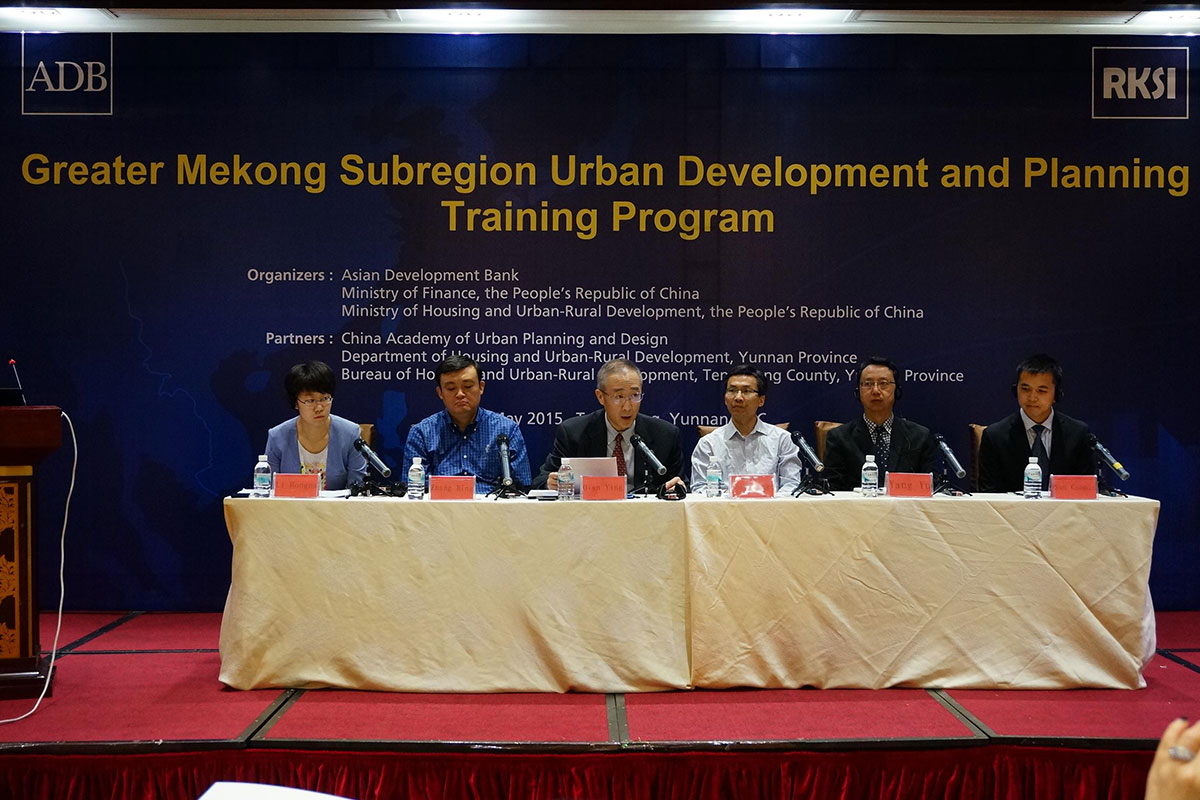
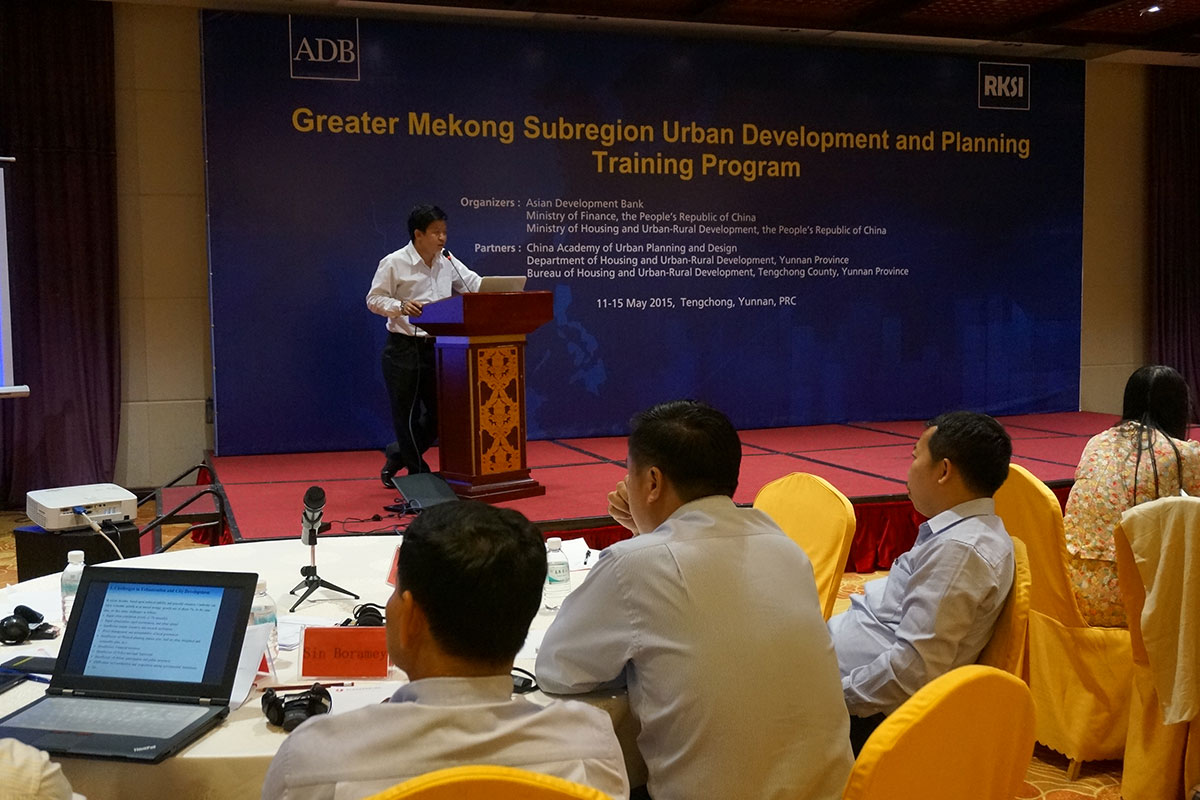
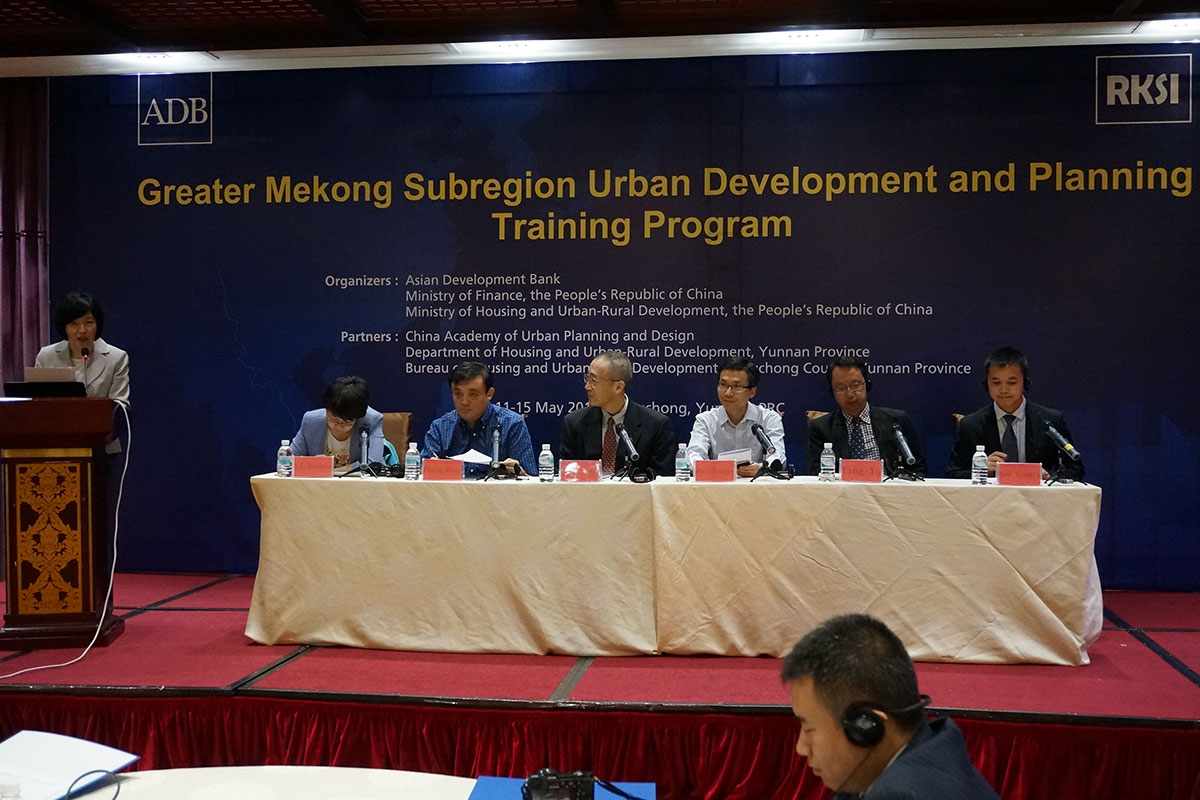
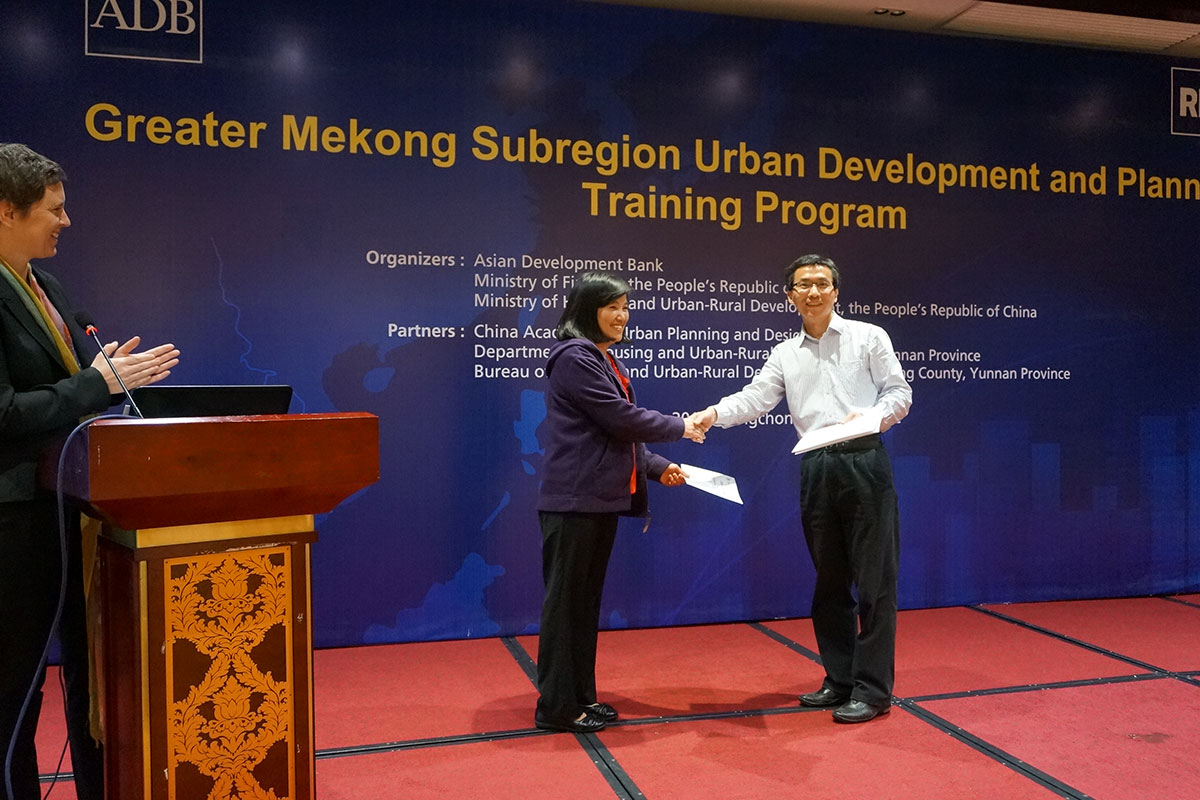
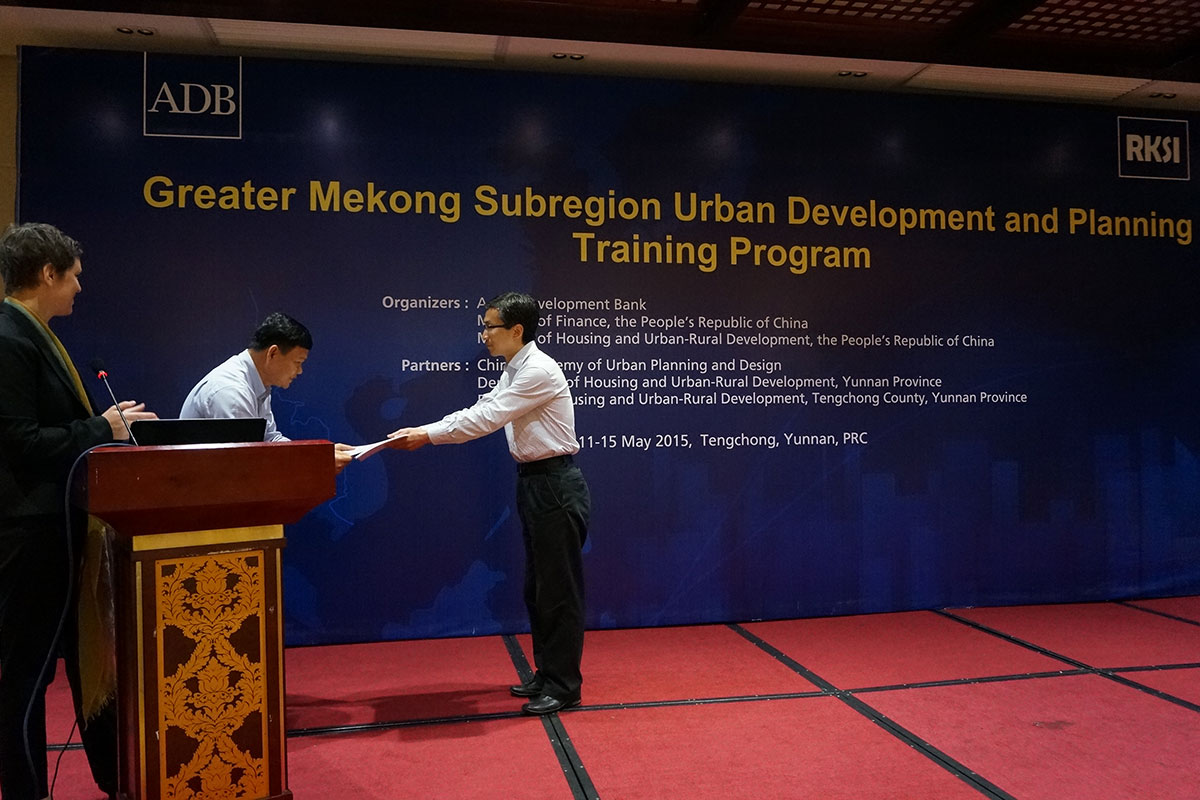
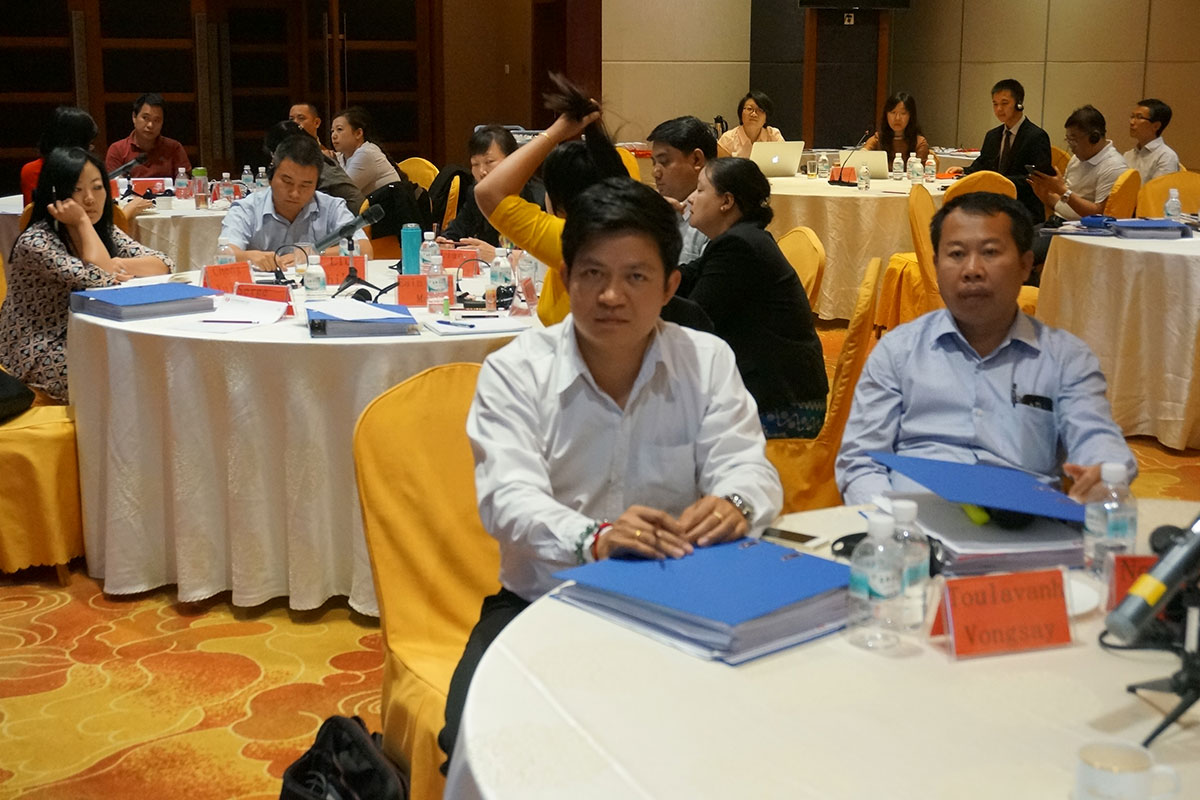
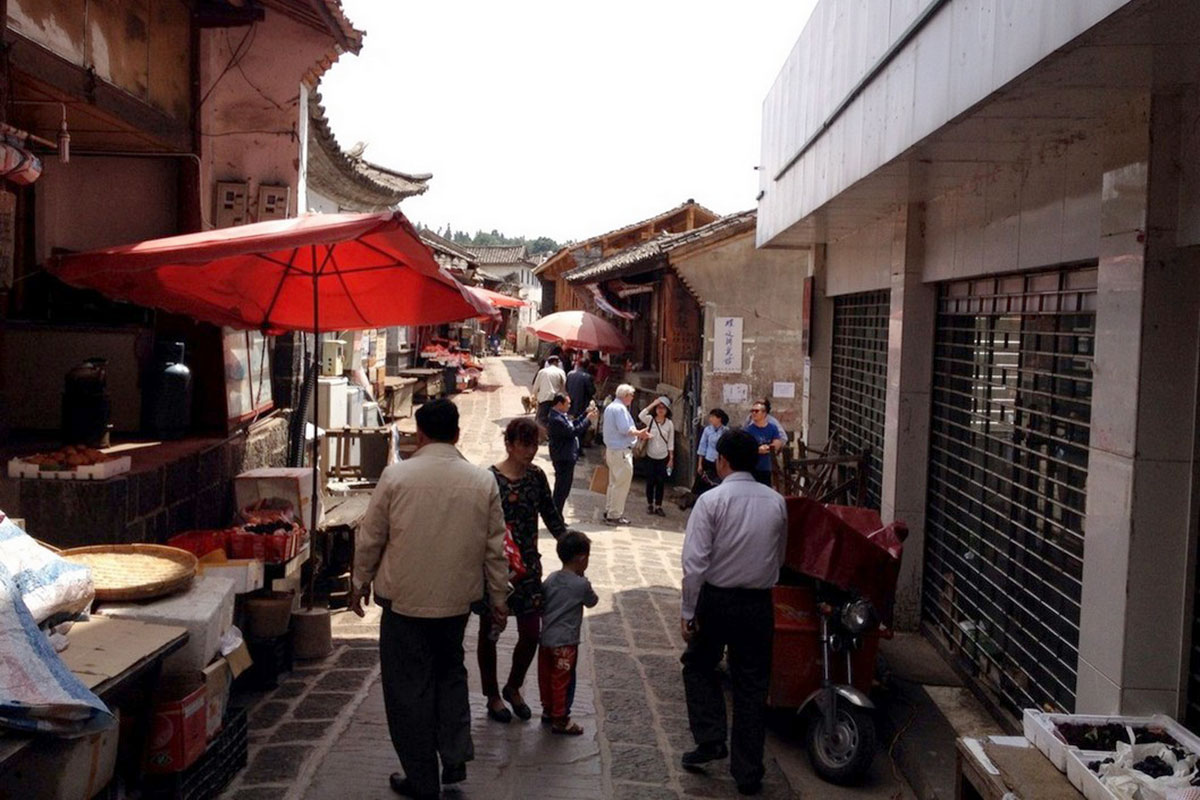
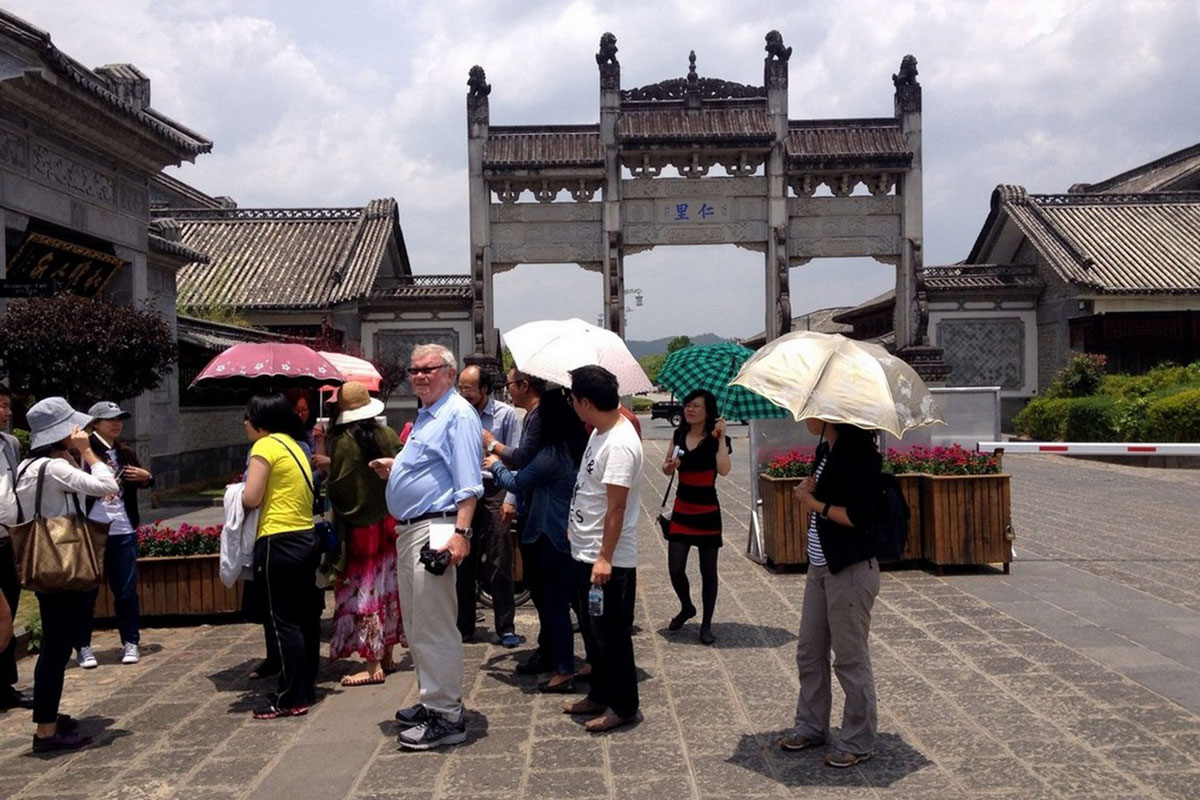
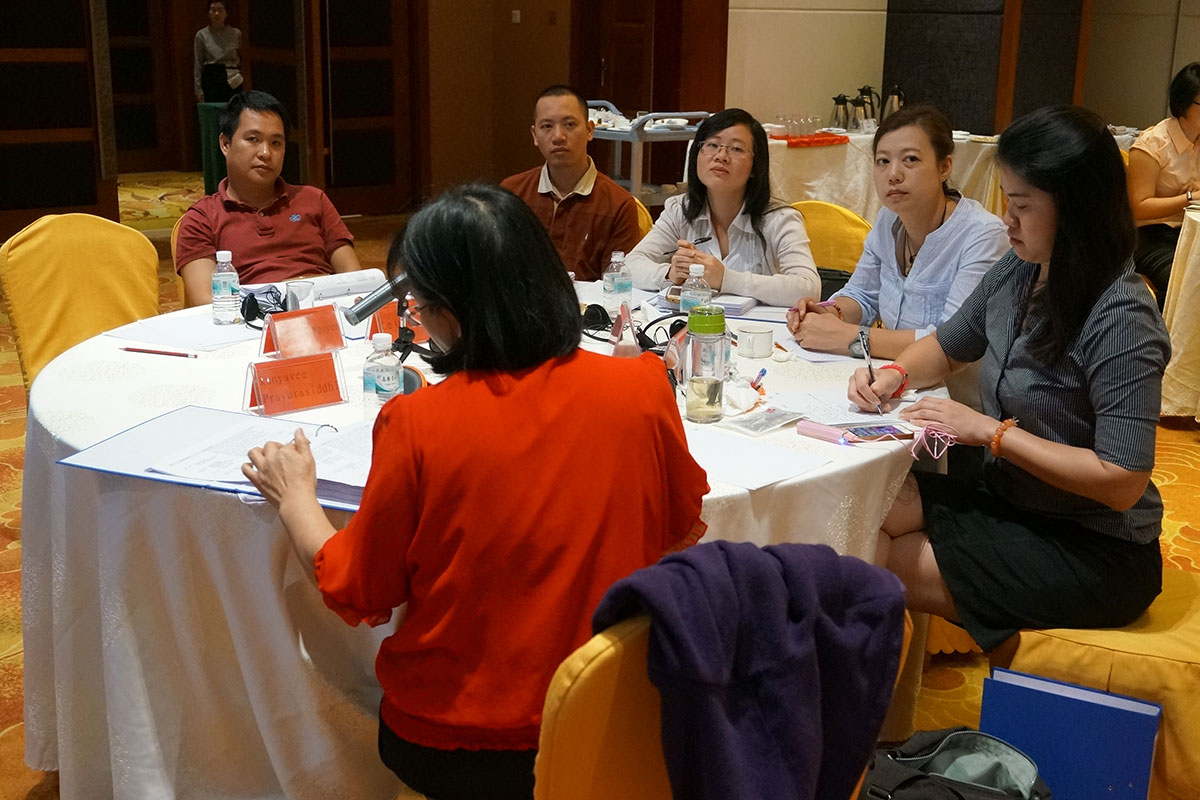
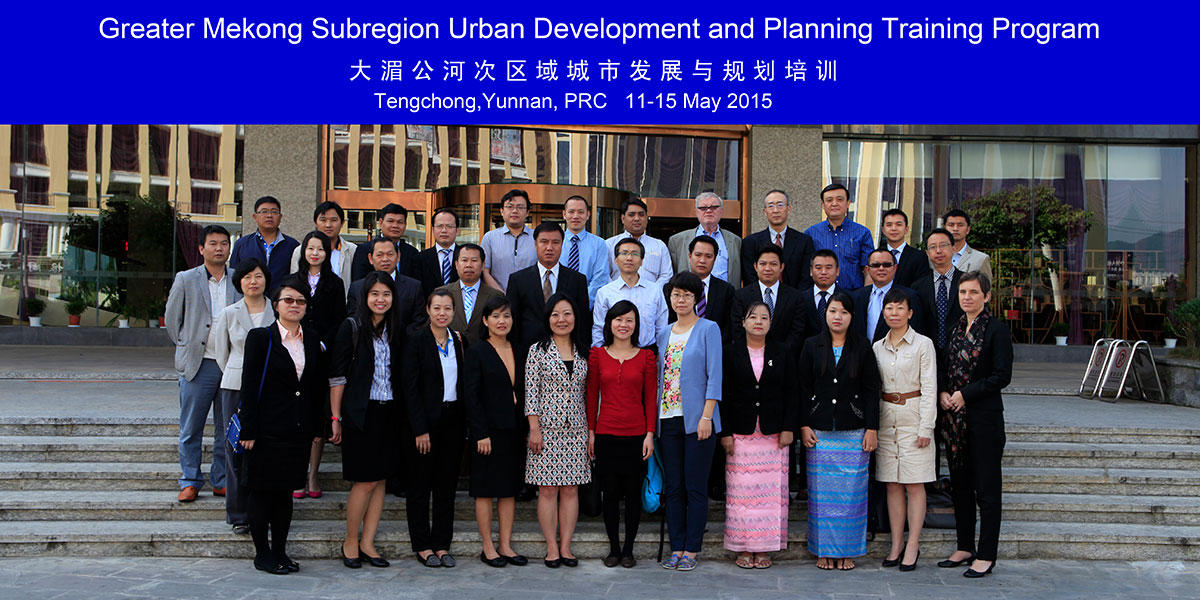
Objective
Use the PRC’s urbanization experience over the last 65 years as a case study to share urban development good practices and lessons with the Greater Mekong Subregion countries.
Participants
Over 30 senior urban development and planning officials from 6 GMS countries (Cambodia, Lao PDR, Myanmar, the PRC, Thailand and Viet Nam) participated.
Scope
The course comprehensively reviewed the PRC’s urban development experience in terms of:
- Multi-scale urban physical planning system;
- Master planning;
- Evolution of building and urban design;
- Housing policy;
- Sustainability and resilience;
- Heritage/cultural preservation;
- Civil infrastructure; and
- Special economic zones in the context of:
- International best urban development practice;
- ADB’s competitive, inclusive, green paradigm; and
- Efficient energy conserving, pollution/GHG reducing urbanization.
Takeaways
- Learn from the PRC in terms of scale, speed, and commitment to urbanization;
- Effective deployment of saturation mass transit and high speed rail;
- Role of special economic zones in supporting economic development (economic and geographic clustering; innovation, labor, and environmental benefits);
- Recognition of GMS – wide urban learning possibilities related to:
- Tourism-amenity driven development;
- Cross-border corridor urbanization;
- Human-centered sustainable city-building (new urbanism);
- Protection of places of high heritage and environmental value; and
- Innovation supportive urban environments.
Event Evaluation
The program was very well received with an overall satisfaction rate of 95.4%. All participants thought the trainers were well-prepared, the training objectives were met, and the training would be useful for future work. Participants showed great interest in the PRC’s best practice and site visit; and enjoyed sharing experiences and lessons among GMS countries. Participants hope to improve their future work through lessons learned and experiences shared from the training. Further topics pf interest could focus special economic zone development, environmental protection, private partnership in urbanization, climate change adaptation and mitigation for urban development process, urban securities, and poverty reduction.
Organizers
- Ministry of Finance, the PRC
- Ministry of Housing and Urban-Rural Development (MOHURD), the PRC
- China Academy of Urban Planning and Design
- People’s Government of Yunnan Province


